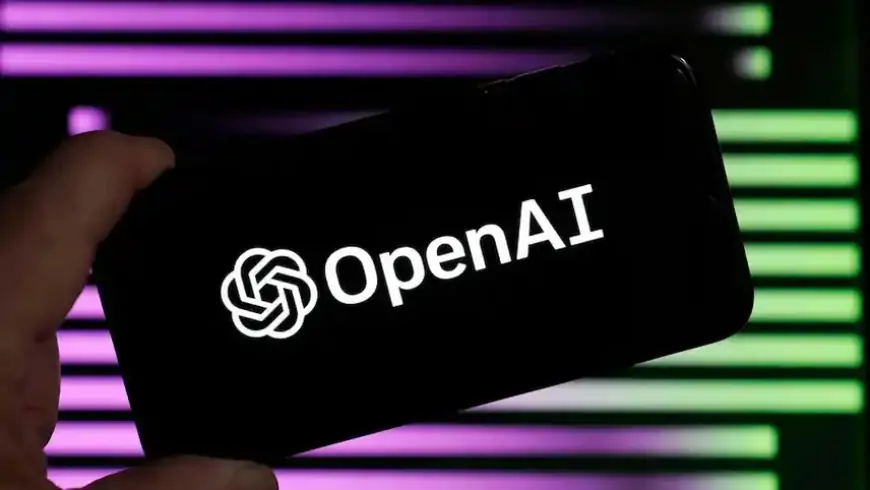What is OpenAI? All you need to know
OpenAI is a research organization focused on developing artificial intelligence in a safe and beneficial manner.

OpenAI, established in 2015 by individuals like Sam Altman and Elon Musk, is renowned for its focus on artificial general intelligence and generative models. Its flagship product, ChatGPT, exemplifies its pioneering work. The organization's founding mission was to develop AI for the betterment of humanity, prioritizing principles like transparency and safety. However, recent events, such as Altman's return in November 2023, have sparked skepticism among critics who question whether OpenAI can balance its altruistic goals with profit motives, casting doubt on its governance framework.
Research endeavors of OpenAI
OpenAI engages in diverse research endeavors, ranging from text summarization, generation, and classification to generative image modeling and original music composition.
A distinctive aspect of OpenAI is its management of both its commercial and research divisions. Initially prioritizing research over AI development, the organization aimed to advance safe and beneficial artificial general intelligence (AGI) while promoting collaboration and transparency. However, as OpenAI transitioned towards commercialization, particularly with the launch of products like ChatGPT in 2020, a shift in focus occurred. This move toward commercialization has raised concerns about adherence to the organization's founding principles of transparency.
Zachary Lipton, an expert in AI, noted OpenAI's pragmatic approach, emphasizing practicality over theoretical elegance. OpenAI recognized the potential of large-scale language models early on but faced challenges in data curation and system engineering.
While OpenAI's commercial efforts help fund ongoing research and safety initiatives, concerns have emerged regarding transparency. The release of GPT-4, for example, lacked detailed information due to competitive and safety considerations, departing from OpenAI's commitment to transparency.
Activities of OpenAI
OpenAI pioneered the creation of the first GPT (generative pre-trained transformer) large language model in 2018. Despite its initial acclaim, subsequent studies revealed significant shortcomings in GPT-3's performance, including generating biased and inaccurate responses. However, this model laid the groundwork for all subsequent GPT-based models.
In 2022, OpenAI achieved global prominence with the launch of ChatGPT, an advanced chatbot built upon a comprehensive language model. This bot, capable of addressing a wide array of topics with context awareness, raised concerns regarding intellectual property, liability, bias, and misinformation due to its sophisticated capabilities.
While ChatGPT and its iterations, like GPT-4, symbolized a new era in AI, evaluations have exposed weaknesses in its responses, with reports indicating inaccuracies in certain domains such as software inquiries. OpenAI has also developed other generative models like Whisper and Codex, along with cutting-edge user interfaces such as DALL·E 3, which generates intricate images from textual cues. DALL·E 3 integration into paid versions of ChatGPT, namely Plus and Enterprise, occurred in October 2023.
OpenAI's valuation
Transitioning from a non-profit to a capped-profit model marked a significant shift for OpenAI, influenced by the complexities of balancing research and development with financial sustainability.
Initially founded in 2015 with a focus on research and safety rather than profit, OpenAI operated as a non-profit with a substantial endowment. However, after years of groundbreaking AI research, the organization realized the limitations of the non-profit model in funding its ambitious work. To maintain its mission while enhancing its capital-raising capabilities, OpenAI revised its legal structure in 2019.
This restructuring involved establishing a capped-profit subsidiary, enabling the organization to generate profits, albeit limited to 100 times the initial investment. This move also led to a departure from open-source practices and a reevaluation of foundational principles. While some researchers now concentrate on improving existing models like GPT and DALL-E, others remain committed to long-term AI safety efforts.
Presently, OpenAI's non-profit arm retains ownership and control over its for-profit counterpart. However, this arrangement exacerbates the imbalance between research and development priorities. Despite the commercial arm's valuation reaching $86 billion, the research division generated modest revenue in 2022, illustrating a divergence in focus towards profitability over research on safety.
This shift has been underscored by events like the November 2023 turmoil, including the departure and subsequent return of key figures like Altman. These developments raise questions about OpenAI's hybrid profit-non-profit structure and its alignment with its founding principles. Altman's reinstatement and board resignations indicate a strategic shift further away from OpenAI's original ideals.












































